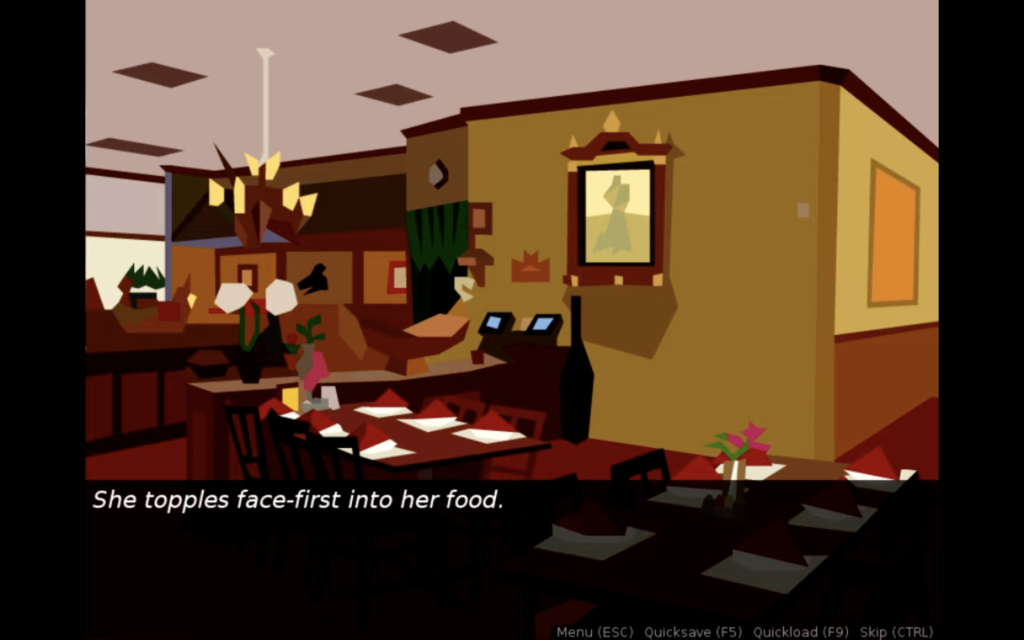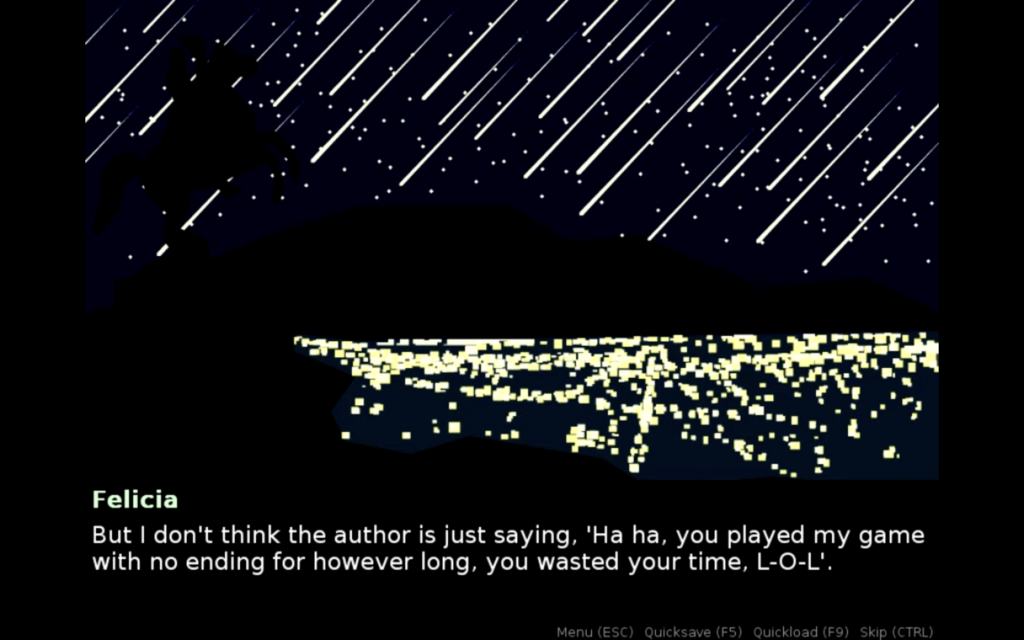Save the Date was really much more than I initially expected. I usually find dating sims boring, lacking realism with flat one dimensional characters and lame dialogue. However, it turns out that Paper Dino Software’s Save the Date isn’t really a dating sim at all, but rather an extremely interesting commentary on the nature of stories that expressed something that has been itching my brain for almost as long as I have been able to form thoughts.

Stories have always been rather sacred to me. I was an avid media consumer as a child, being a voracious reader and anime/cartoon/movie watcher. I would have little rituals I would hold, such as an insistence on never skipping openings or endings (as my involvement in touching the timeline of the universe would de sanctify the world) or holding books to sleep much like one would a teddy bear perhaps, in hopes that I could be transported into the stories I read in my dreams. The worlds, stories and characters that reside inside them were always real to me. As such I connected very deeply to what this game had to say on the essence of stories.
In Save the Date, you are seemingly tasked with selecting the best options to plan the perfect date for you and your date Felicia. The catch is that no matter what you do, the date, and game, always ends with Felicia dying, whether through car accidents, sudden peanut allergies, or ninjas coming out the walls, to name a few incidents. As the player, you are led to believe that the ultimate goal is to prevent Felicia’s death, by reloading previous saves and attempting to avoid unsavoury options. However, the second half of the game takes a turn and you find yourself in dialogue with Felicia, explaining her character and the game you are playing to her, with her musing on the purpose of her existence. She has a quote (that I can’t find a screenshot of right now) at from that point about how despite being, knowing, that she’s simply a character in a small dating sim indie game, she still feels very real, and suggests to the player that this realism is the fault of the player themself, who, by inserting themselves into the game’s world and perceiving her, has given her life. In other words, stories are real inside the head of whomever’s head is perceiving it, and to achieve the ending we want, all we have to do is simply close out the game and write our own ending; it will be just as valid as if it were written in the game itself.

Save the Date is not the first piece of media to discuss the idea of stories living on without an author. In Roland Barthes’s essay “Death of the Author”, he describes exactly that; that it is not the author that truly gives life and sovereignty to what they write, but is instead the reader and perceivers of their words. An author’s text is only given meaning once there is a reader to perceive it.
Paper Dino Software approaches this concept in a very meta way, emphasizing on their existence as an author within Felicia’s dialogue while also urging the player to come up with their own meaningful conclusions to the game. Not that Barthes is an unconvincing writer by any means, but by using Felicia, a character that I had grown to b
While there is a question of “good ending” in Save the Date, I believe the best ending is one in which I’ve been encouraged to write in my head; Felicia and I have the extensive existential meta dialogue, she is self aware, and we have a lovely night watching the end of the world.

